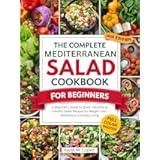Have you ever considered the profound impact your daily plate has on the strength and resilience of your skeletal system? The insightful video above provides a concise overview of how proper nutrition forms the bedrock of robust bone health. It highlights a crucial concern, particularly in India, where an alarming number of individuals, especially women, face challenges like osteoporosis due to dietary deficiencies and lifestyle choices.
Understanding the link between what we eat and our bone integrity is paramount for maintaining an active and fulfilling life. Strong bones are not merely about preventing fractures; they support our mobility, protect our organs, and contribute significantly to our overall quality of life. This article will delve deeper into the specific nutrients essential for bone health, expanding on the video’s vital message and offering practical pathways to empower your skeletal system for years to come.
The Silent Epidemic: Osteoporosis in India and Women’s Bone Health
The statistics presented in the video are indeed sobering, revealing that osteoporosis impacts nearly 23 crore people over 50 years across India. This staggering figure underscores a widespread public health challenge that demands immediate attention and proactive measures. The prevalence of this debilitating bone disease is particularly elevated among women, a trend observed globally, yet exacerbated by specific factors within the Indian context.
Several physiological and socio-cultural elements contribute to this disparity in women’s bone health. Hormonal changes during menopause lead to a rapid decline in bone density, making women more susceptible to bone loss. Additionally, historical dietary patterns often mean lower calcium intake throughout their lives, coupled with prevalent vitamin D deficiencies. Addressing these specific risk factors through targeted nutritional interventions and awareness campaigns is absolutely crucial for improving outcomes for millions of Indian women.
Essential Nutrients for Strong Bones: Beyond Calcium and Vitamin D
While calcium and vitamin D are widely recognized as cornerstones of bone health, the video rightly emphasizes that a symphony of nutrients is required for optimal skeletal strength. It is a misconception that merely consuming dairy products will guarantee strong bones; a holistic nutritional approach is truly necessary. Each nutrient plays a distinct, yet interconnected, role in the complex processes of bone formation, maintenance, and repair, creating a robust internal structure.
Let’s explore these critical building blocks and their functions in greater detail, moving beyond the basic understanding. A balanced diet incorporating these elements actively contributes to bone density and resilience. Understanding their individual contributions allows for more informed dietary choices and a more comprehensive approach to skeletal well-being.
Calcium: The Primary Building Block
Calcium is undeniably the most abundant mineral in our bodies, with approximately 99% of it stored in our bones and teeth. It provides the rigid structure that defines our skeletal system, acting as the primary constituent for bone formation. Adequate calcium intake throughout life helps achieve peak bone mass in youth and minimizes bone loss in later years. When dietary calcium is insufficient, the body cleverly draws calcium from the bones to maintain vital functions, weakening them over time.
Excellent dietary sources of calcium extend far beyond just milk and dairy products. Think about embracing leafy green vegetables like spinach, kale, and collard greens, which offer significant amounts of this essential mineral. Fortified cereals, calcium-set tofu, and various nuts such as almonds also provide valuable contributions. Adults generally require between 1000-1200 mg of calcium daily, a target achievable with mindful food choices.
Vitamin D: The Calcium Absorption Facilitator
Vitamin D plays an indispensable role in bone health by regulating calcium and phosphate absorption in the gut. Without sufficient vitamin D, even ample calcium intake may not translate into strong bones, as the body cannot effectively utilize it. This unique vitamin also influences bone remodeling, the continuous process of old bone tissue being replaced by new, healthy bone.
Sunlight exposure is a primary natural source, as our skin synthesizes vitamin D when exposed to UVB rays. However, factors like geography, skin pigmentation, sunscreen use, and time spent indoors can limit this production significantly. Dietary sources include fatty fish like salmon and mackerel, fortified milk and cereals, and some mushrooms. Many individuals, especially in regions like India, experience vitamin D deficiency, making supplementation a frequently recommended strategy.
Protein: Crucial for Bone Matrix and Repair
Often associated solely with muscle building, protein is equally vital for bone health, forming about 50% of bone volume. It provides the organic matrix of bone, a scaffolding onto which minerals like calcium are deposited, giving bones their flexibility and strength. Adequate protein intake is essential for synthesizing bone-building hormones and enzymes. It also plays a key role in fracture healing, aiding in the repair and regeneration of bone tissue.
Both animal and plant-based protein sources contribute positively to bone health. Lean meats, poultry, fish, eggs, and dairy products are excellent animal sources. Plant-based options include legumes like lentils and beans, tofu, tempeh, nuts, and seeds. Distributing protein intake evenly throughout the day can optimize its benefits for both muscle and bone health, ensuring a steady supply of amino acids.
Magnesium: A Cofactor in Bone Mineralization
Magnesium is another crucial mineral, with approximately 60% of the body’s magnesium stored in the bones. It acts as a cofactor in hundreds of enzymatic reactions, including those involved in converting vitamin D to its active form and regulating calcium levels. Magnesium also contributes directly to bone mineral density, influencing the crystalline structure of bone. A deficiency can impair bone formation and increase fracture risk.
Rich dietary sources of magnesium include leafy green vegetables, nuts (almonds, cashews), seeds (pumpkin, chia), whole grains, legumes, and dark chocolate. Ensuring adequate magnesium intake supports not only bone health but also muscle function, nerve transmission, and energy production. Many people do not consume enough magnesium, making it an important nutrient to focus on.
Vitamin K: Activating Bone Proteins
Often overlooked, vitamin K plays a critical role in bone metabolism by activating specific proteins required for bone mineralization. Osteocalcin, a protein central to bone formation, needs vitamin K for proper functioning. It helps bind calcium to the bone matrix, ensuring calcium is directed to the bones rather than accumulating in soft tissues. Vitamin K also helps reduce calcium excretion, further preserving bone density.
There are two main forms: K1 (phylloquinone) found predominantly in leafy green vegetables like kale, spinach, and broccoli, and K2 (menaquinone) found in fermented foods, some animal products, and synthesized by gut bacteria. Consuming a diverse diet rich in green vegetables and fermented foods can help meet your vitamin K requirements. Emerging research continues to highlight the significant role of vitamin K2 in directing calcium traffic within the body.
Beyond Nutrition: Lifestyle Factors for Optimal Bone Strength
While nutrition is fundamental, a holistic approach to bone health integrates several key lifestyle factors, as underscored by the video. Regular physical activity and adequate sunlight exposure work synergistically with dietary intake to maximize bone density and strength. These elements are not mere supplementary practices; they are integral components of a comprehensive bone health strategy.
Weight-bearing and resistance exercises are particularly beneficial for stimulating bone growth and increasing bone density. Activities like walking, jogging, dancing, hiking, and lifting weights put stress on the bones, prompting them to adapt and become stronger. Aim for at least 30 minutes of moderate-intensity exercise most days of the week. Furthermore, sensible sun exposure, typically 10-15 minutes a few times a week, can significantly boost your natural vitamin D production, reinforcing your nutritional efforts for strong bones.











